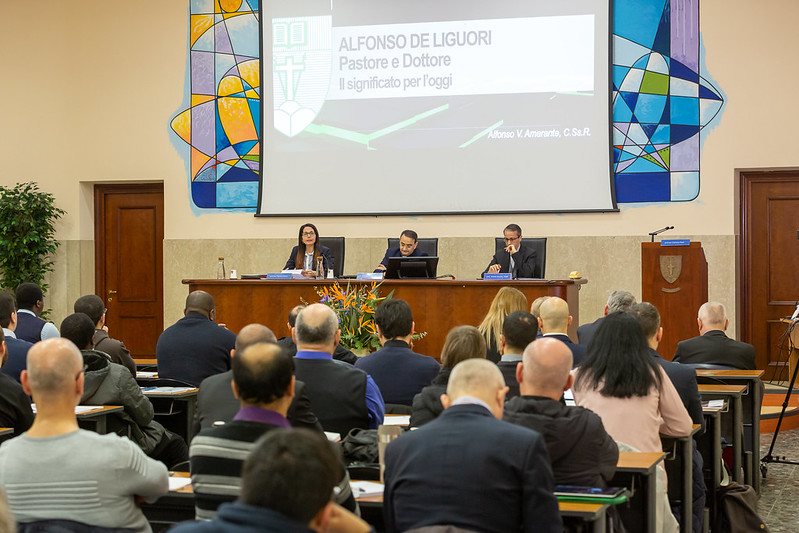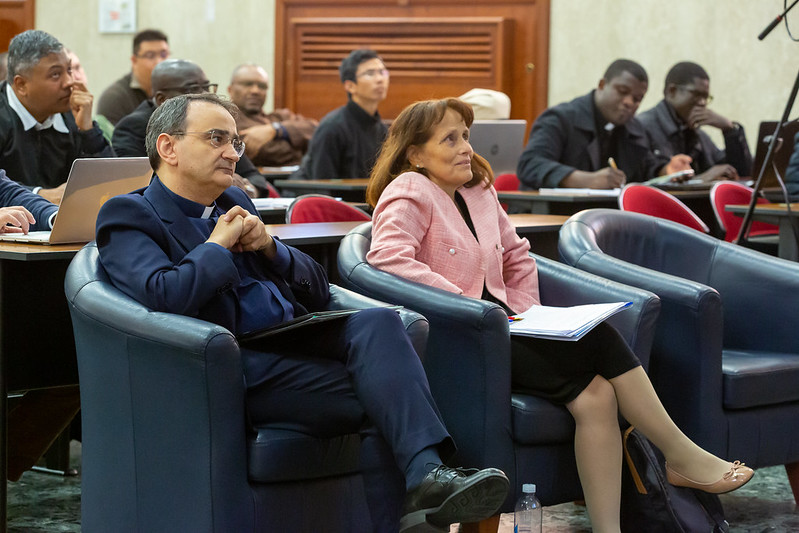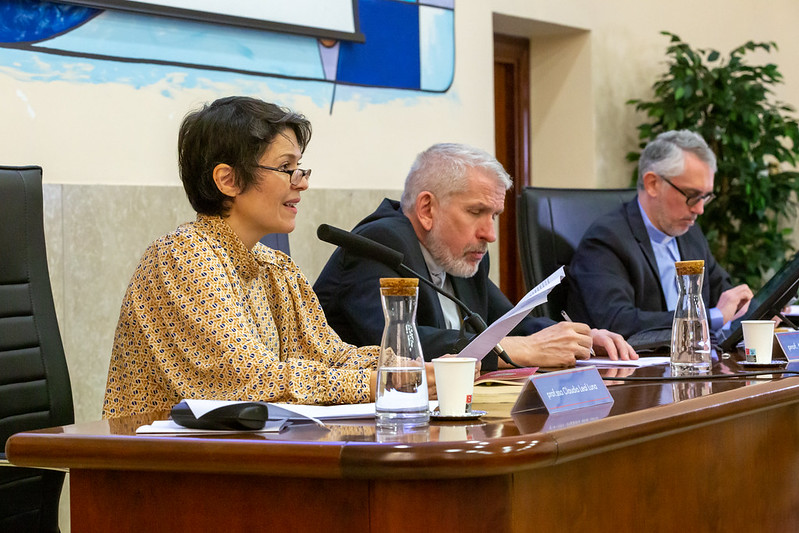“Saint Alphonsus, Pastor of the least and Doctor of the Church. The relevance of the Alfonsian moral proposal between challenges and hope” was the title of the Convention held at the Alphonsian Academy from March 21 to 22. Divided into three sessions – each dealing with a specific area of moral theology – the Convention was attended by eleven key speakers, which, combined with the opportunity for the listeners to contribute questions and issues, made the days particularly rich in interest and food for thought.
The first session was devoted to an in-depth examination of conscience, a classic theme of fundamental moral theology. Prof. Alfonso Amarante CSsR, in his lecture, first provided the interpretative keys with which to read the figure of St. Alphonsus today, identifying them in the image of the “shepherd”, who bends over the last ones and shows them the way to holiness as a possible path, and of the “doctor”, who in the wilderness of moral opinions can identify that middle way capable of escaping both lax subjectivism and rigorist objectivism.
Next, Prof. Antonio Donato CSsR investigated the centrality of conscience in Alphonsus’ moral proposal, as it emerges from the entire corpus of literature, in which it is aditus, i.e. the gateway to the moral life, in a dynamic process in which it leads the materiality of the law to a formal injunction.
Professor Cataldo Zucchero, for his part, described the role of conscience in moral discernment, of which it assumes the direction: through the work of the Holy Spirit and under the guidance of prudence, it comes to determine from time to time what is the greatest good concretely feasible in a given situation, after taking into consideration both the authority of the social ethos and the authority of the norm and the seriousness of the person’s actual circumstances.
Lastly, Prof. Carla Corbella described the dynamics of the formation of conscience, for which, especially in today’s solipsistic and narcissistic culture, the intersubjective relationship acquires an ever more significant function so that through the other and the Other, the person knows and is attracted to the good he or she is called upon to do.
The second session dealt with the person in the bioethical sphere. Prof. Maurizio Faggioni initially showed St. Alphonsus’ ability to deal with and prepare solutions to the moral problems that the health conditions of the time posed to him, which reveals the spirit of the pastor, attentive to the concrete needs of the people, and of the moralist, diligent in keeping abreast of scientific innovations.
Prof. Giovanni Del Missier then proposed the category of vulnerability as the key to accessing Alphonsus’ spirit today, that is, his closeness to the last and the abandoned; this category allows us to expand the classic boundaries of bioethics and identify a new focus: those who in this world, by an often invisible vulnerability, ask more than others that we take care of them.
Finally, Prof. María Martha Cúneo proposed three practices from the field of paediatric medicine in which moral discernment in the Alfonsian perspective can be implemented: the problem of assessing the appropriateness of a therapy, sexual development disorders and gender identity disorders.
The third and final session dealt with social justice from the perspective of social morality. First, Prof. Martin McKeever CSsR proposed a reflection on the relationship that has been established since modernity between Christian faith and social justice, in which, for the first time in history, the latter becomes an extra-ecclesial political objective, due to a new trust in man to build a more just world.
Subsequently, Prof. Claudia Leal Luna carried out a historical analysis of liberation theology, recognising that in its well-known and tribulated events, the struggle for justice has become a motive for theoretical elaboration and an opportunity for a renewed and not disenchanted evangelisation, in order to discern God’s will in the dynamics of history.
Lastly, Prof. Giulio Cesareo retraced the documents of the Social Doctrine of the Church, from Quadragesimo Anno to Fratelli tutti, tracing the evolution that it has matured regarding the category of social justice, in an ongoing in-depth study always aimed at listening to reality.
The abundance and depth of the themes dealt with at the Conference cannot but have once again convinced us of the goodness of Alfonso’s moral proposal and its usefulness for the life of the Church, the same Church that Alfonso teaches us and still urges us to serve today.
Don Lorenzo Pertusini (original text in Italian)
See more pictures on Flickr.com

More information about the Conference
See the event live broadcasted on the YouTube Channel of the Accademia Alfonsiana











